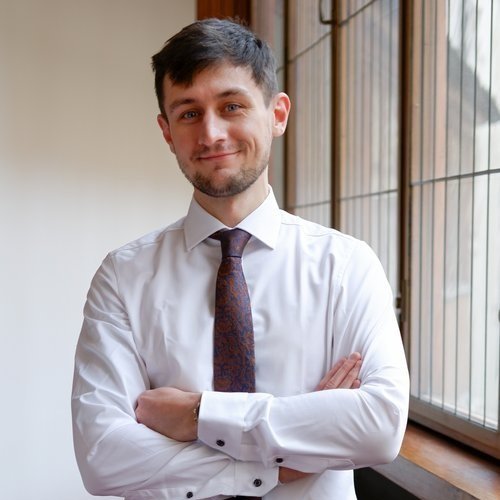MICROCODE: Exploring the Role of Public Opinion in Military Alliances
This groundbreaking project funded by the European Research Council (ERC) uncovers how public opinion drives the stability of military alliances such as NATO. Using advanced experiments, cross-national investigation and political psychology, it explores how people’s views shape key defence decisions. With immersive methods, the research will explore public opinion as the centre of understanding the microfoundations of collective defence.
about microcode
The “Microfoundations of Collective Defence” (MICROCODE) project is funded by the prestigious European Research Council (ERC) Starting Grant. It aims to initiate a new research agenda in the study of military alliances and collective defence that puts the relationship between public opinion and elite decision-making at the centre of the analysis.
Building on insights from experimental political science, international relations, sociology, and political psychology, the team behind this project aims to investigate the microfoundations of collective defence as a three-stage process guided by distinct yet interrelated research questions:
(1) How individuals in allied countries form their attitudes towards defending allies;
(2) How these attitudes aggregate to form public opinion shaped by cues from social peers, experts, media, and politicians;
(3) When and how public opinion influences views on collective defence among the decision-makers in allied states.
The ambition of the research team is to conduct an extensive, cross-national investigation in the key NATO member states, employing novel immersive mixed media (video, sound, pictures) survey experiments, elite interviews, focus groups, and other quantitative and qualitative methods.
Research Team
MICHAL SMETANA
Michal Smetana is the Principal Investigator of the project. He is an Associate Professor at the Institute of International Studies of the Faculty of Social Sciences, Charles University, Director of the Peace Research Center Prague (PRCP), and Head Researcher at the Experimental Lab for International Security Studies (ELISS).
ondřej rosendorf
Ondrej Rosendorf is a postdoctoral researcher at the Peace Research Center Prague (PRCP), Charles University, and at the Institute for Peace Research and Security Policy at the University of Hamburg (IFSH). His research interests include the ethical and strategic implications of emerging technologies, especially lethal autonomous weapon systems, public attitudes toward the military use of force, and informal intergovernmental organizations.
marek vranka
Marek Vranka is a researcher at Peace Research Center Prague, at ELISS, and CEVÝZ. He also lectures at the Faculty of Social Sciences, Charles University, and leads the Prague Experimental Laboratory for Social Sciences (PLESS).
LAUREN SUKIN
Dr. Lauren Sukin is an Assistant Professor of International Relations at the London School of Economics and Political Science (LSE). Dr. Sukin is also an affiliate at LSE’s United States Centre, Stanford University’s Center for International Security and Cooperation (CISAC), and the Nuclear Policy Program at the Carnegie Endowment for International Peace.
michaela nguyenová
Michaela Nguyenová is the PR and Media Manager of the project and of Peace Research Center Prague (PRCP). She is a bachelor student of Marketing Communication and PR at the Faculty of Social Sciences, Charles University.
ZAKIR RZAZADE
Zakir Rzazade is a junior researcher at Peace Research Center Prague and a Ph.D. student at the Institute of International Studies, Faculty of Social Sciences, Charles University.







